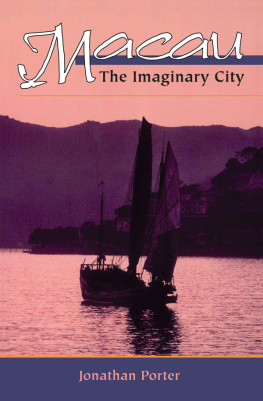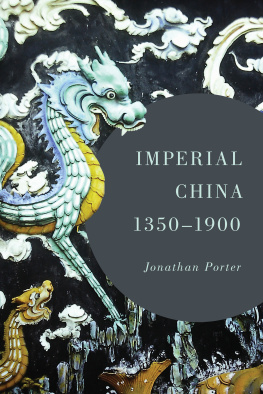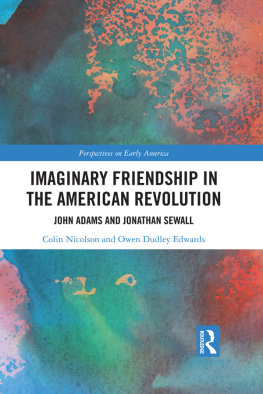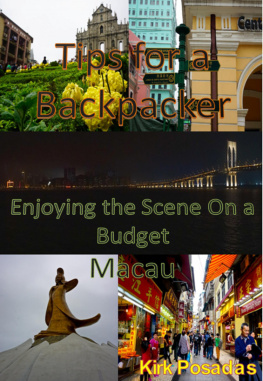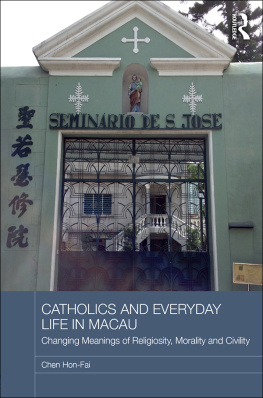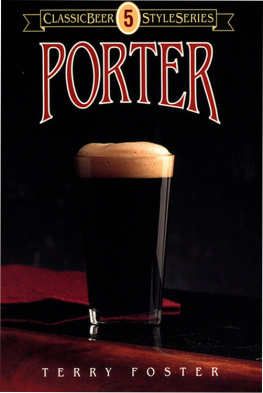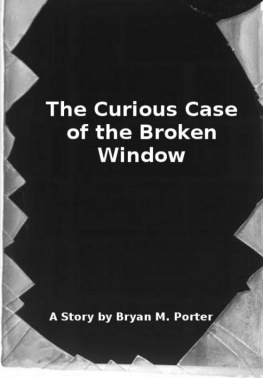New Perspectives on Asian Studies
Photos by the author except as noted.
Excerpts from Invisible Cities by Italo Calvino, copyright 1972 by Giulio Einaudi editore s.p.a., English translation copyright 1974 by Harcourt Brace & Company and by Secker & Warburg. Reprinted by permission of Harcourt Brace & Company and by Reed Books Ltd.
First published 1996 by Westview Press
Published 2018 by Routledge
711 Third Avenue, New York, NY 10017, USA
2 Park Square, Milton Park, Abingdon, Oxon OX14 4RN
Routledge is an imprint of the Taylor & Francis Group, an informa business
Copyright 1996 Taylor & Francis
All rights reserved. No part of this book may be reprinted or reproduced or utilised in any form or by any electronic, mechanical, or other means, now known or hereafter invented, including photocopying and recording, or in any information storage or retrieval system, without permission in writing from the publishers.
Notice:
Product or corporate names may be trademarks or registered trademarks, and are used only for identification and explanation without intent to infringe.
Library of Congress Cataloging-in-Publication Data
Porter, Jonathan.
Macau, the imaginary city : culture and society, 1557 to the
present / Jonathan Porter.
p. cm. (New perspectives in Asian studies ; 195.)
Includes bibliographical references and index.
ISBN 0-8133-3749-6
1. Macau.2. MacauCivilization.I. Title.II. Series.
DS796.M2P671996
951.26dc20
96-7544
CIP
ISBN 13: 978-0-8133-3749-4 (pbk)
Contents
introduction
The Imaginary CityDepartures
one
Two WorldsOrigins: Portugal and China
two
BoundariesOn the Periphery
three
MemoriesThe Architecture of History
four
TransitionsCrossing the Threshold
five
MomentsThe Culture of Everyday Life
six
ImagesSpiritual Topography
conclusion
IllusionsEpilogue
This book had its genesis when, as a teaching assistant to Woodbridge Bingham's course on Eastern Civilizations at the University of California at Berkeley, I saw some slides shown by Professor Bingham of a city that seemed to exist from another time. I knew then that I would have to go there.
Macau, the place and its people, have captivated me, almost in the literal sense of the word, since I first visited Macau almost thirty years ago. The writing of this book has been a prolonged effort to acknowledge that captivation and perhaps, partly unconsciously, to escape it. If that very personal obsession with Macau has emerged in this book, I have not attempted entirely to suppress it.
I owe an incalculable debt to the anonymous (to me) but not faceless people of Macaupeople I passed in the streets, encountered sitting reflectively at the ends of narrow alleys, jostled in the market, accosted in the shops; children playing in the schoolyards and parks; friendly and helpful custodians of temples; men attending their pet birds in the gardens. Without them this book would not be. A good part of this book was written while sitting on the balcony of the old Bela Vista Hotel. Surely I must also acknowledge the benign influence of that fine old building.
The staffs of the Arquivo Historien de Macau, the Sir Robert Ho Tung Library, and the National Library at the Leal Senado were courteous and helpful. Monsignor Manuel Teixeira, always generous to visiting scholars, guided me through the Catholic institutions of Macau. I am grateful to Joanna Kaestner of Albuquerque for supplying me with a copy of the manuscript journal of Edward E. Fuller. I am also grateful to Noelle Sullivan and Liping Zhu for their research assistance.
Stephen Mackinnon, Robert Kern, Paul Hutton, Jerry Bentley, and William H. McNeill read various versions of the manuscript and offered their criticism and encouragement. Although I may not always have been successful in following their advice, their interest and suggestions for improvement gave me the confidence to continue. To Virginia Scharff, my friend and colleague, I acknowledge a special debt of gratitude. Her sympathetic yet demanding reading of the manuscript made me see things in new ways. If I have failed to live up to her expectations, I have gained immeasurably from her suggestions. I wrote most of this book while serving for nine years (1986-1995) as chair of the History Department at the University of New Mexico. If it had not been for the unflagging support of Yolanda Martinez, the department administrator, through all those difficult years, I would not have been able to complete this work. I am grateful to the University of New Mexico for a sabbatical leave in the fall of 1988, when I could work on the book for an uninterrupted period.
I also want to thank the New Perspectives on Asian History series editors Edward Farmer and Ainslie Embree; Peter Kracht, Westview Press Senior Editor: as well as project editor Shena Redmond and copy editor Ioan Sherman.
My greatest debt is to Zo, who has been since our first visit to the city an ever-present and resourceful companion in our discovery of Macau. Thanks to her, the memory of our very first visits to Macau, when we stayed at the much-beloved old Pousada de Macauonly four rooms and one of the best restaurants in the Far Eastnext to the Government House on the Praia Grande, is still fresh.
It will be apparent to the reader that this book took shape and was written over a period of many years. Macau today is a different place than it was twenty or thirty years ago, when I first visited the city. Much of the isolation of Macau, its island-like quality and with it much of its peculiar charm, has been eroded by the rapid economic integration of the enclave with the neighboring mainlanditself rapidly developingin the past decade. Even so, I have been pleased that very recent first-time visitors to Macau have relayed to me some of the same fascination with the place that I first experienced there. This book is dedicated to that particular but elusive experience that is Macau.
Jonathan Porter
Preface
By the end of 1999, when the territory is handed back to China, Macau will have been occupied and governed by the Portuguese for 443 yearsalmost half of the closing millennium. Those five centuries encompass one of the most epochal movements in human history: the expansion of European peoples around the globe. It was a movement driven by diverse motivations, having many dimensions, and holding vast implications, many of which continue to shape the world at the close of the millennium and into the next. The effects of this expansion and the dominance of European peoples over Asians, Africans, and other peoples were both benign and malign, constructive and destructive, noble and ignoble. Arguments over these effects probably will never be resolved because both those who were the subjects of the expansion and those who led it have been thoroughly transformed by the process. But one thing is indisputable: The interaction of peoples and their cultures, institutions, and technologies has been the salient legacy of this epoch. Macau is one place where that cross-cultural interaction occurred over almost the entire period of expansion and contraction of European dominance in Asia.


